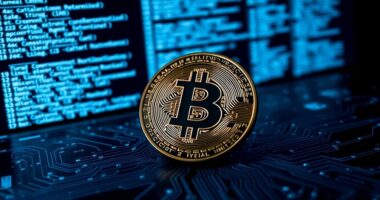You might think meme coins are just a fun addition to the crypto world, but Dubai's regulatory authority has some serious concerns. They highlight the dangers of these volatile assets, which often lack real value and can lead to significant losses. As you navigate this unpredictable market, it's crucial to stay informed about potential scams and misleading practices. So, what should you watch out for before diving in?

As Dubai positions itself as a leading global hub for virtual assets, the Virtual Assets Regulatory Authority (VARA) has sounded the alarm on the perils of memecoins. These digital tokens, often birthed from internet jokes and memes, pose a unique set of risks that could jeopardize your investments. VARA's commitment to investor protection and market integrity highlights the need for you to approach memecoins with caution.
Memecoins typically lack intrinsic value and real-world utility. Unlike established cryptocurrencies, these coins, like Dogecoin and Shiba Inu, depend heavily on social media hype and community trends. This speculative nature makes their prices highly volatile. If you're considering investing, you might find that prices can skyrocket one day and plummet the next, often influenced by fleeting online trends. Such volatility can expose you to significant financial losses, especially during rapid price collapses. Dubai's Virtual Assets Regulatory Authority has been particularly vocal about these concerns, emphasizing the need for investor awareness.
Memecoins lack intrinsic value and are prone to extreme volatility, exposing investors to significant financial risks.
VARA has issued warnings emphasizing these risks, particularly around price manipulation and liquidity issues. Because memecoins are generally unregulated, they're susceptible to pump-and-dump schemes where prices are artificially inflated, only to crash shortly after. You should be wary of any promises of unrealistic returns; these can be red flags indicating potential fraud, including scams like rug pulls or fake endorsements.
In response to these challenges, VARA has created a regulatory environment aimed at ensuring market integrity. Stricter marketing rules are in place to protect consumers from misleading practices. If you're involved in promoting or trading memecoins, you need to be aware that non-compliance can lead to fines. VARA is serious about monitoring crypto activities, and the evolving regulations aim to address emerging risks effectively.
If you're contemplating investing in memecoins, thorough research is crucial. You should assess the underlying technology and community support before diving in. Diversifying your portfolio can also help reduce your risk exposure. As the memecoin market matures, regulations are expected to tighten, making it essential for you to stay informed.
Ultimately, while Dubai seeks to position itself as a crypto haven, it's important to navigate this landscape with a clear understanding of the risks associated with memecoins. VARA's warnings serve as vital reminders that due diligence and caution are your best allies in this volatile market. Remember, the potential for significant losses often outweighs the allure of quick gains.









